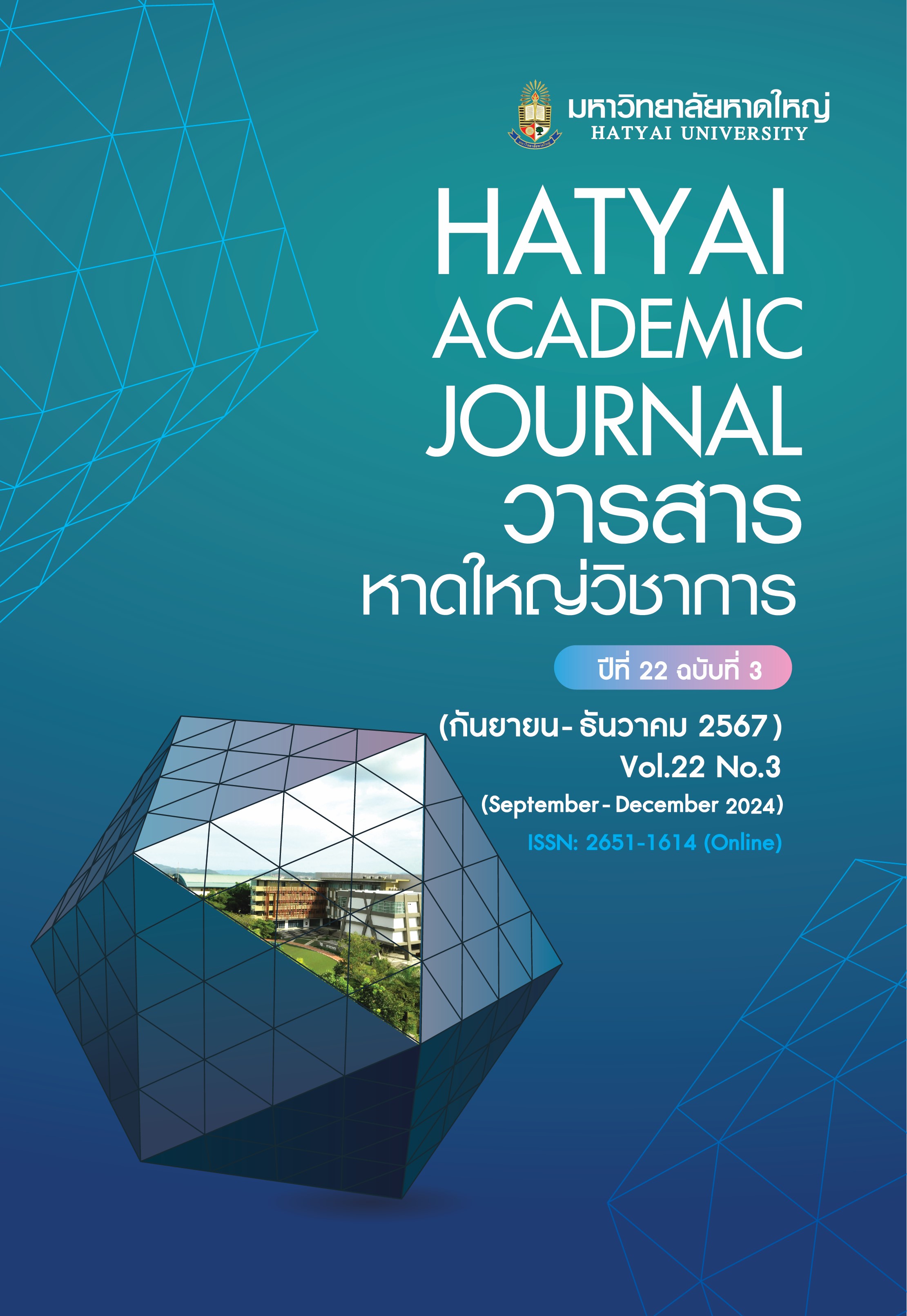Transformational Leadership of the Provincial Administrative Organization President for Sustainable Local Development
Main Article Content
Abstract
The Provincial Administrative Organization (PAO) is a form of local government. The president of the provincial administrative organization is the highest executive directly elected by the people. According to the Provincial Administrative Organization Act of 1997, provincial administrative organization presidents have powers as well as duties, and they serve as the highest authority commanding both city officials and regular government officials. They also have full responsibility for developing the province, which differs from other forms of government organization. In addition, changes in global society have resulted in the emergence of the concept of sustainable development as a guideline for achieving local or national development goals. When there are changes in politics, economy, and society, leaders need to change as well. They must develop themselves to have transformational leadership characteristics, including creating charisma or having influence with an ideology, inspiration, intellectual stimulation, consideration of individuality, giving rewards beyond expectations, management by omission, situational rewards, having confidence in followers, foresight, and accepting change. The important qualities of change leaders for sustainability include having a proactive and strong team, solving complex problems, thinking outside the box, creating innovations, possessing emotional stability, and viewing followers as human beings to make management both within and outside the organization successful. This will affect local development to be sustainable.
Article Details

This work is licensed under a Creative Commons Attribution-NonCommercial-NoDerivatives 4.0 International License.
All published articles are evaluated by three qualified peer reviewers from various institutions through a double-blind process, where reviewers do not know the authors’ identities and authors do not know the reviewers’ identities. The content and articles in the Hatyai Academic Journal reflect the authors’ views only and are neither the opinions of the editorial board nor the responsibility of Hatyai University. The Editorial Board of the Hatyai Academic Journal allows articles to be reproduced for academic purposes, on the condition that the original source is clearly cited.
References
Atthmana, S. (1998). Organizational behavior: Theory and applications. Bangkok: Thammasat University Press. [in Thai]
Avolio, B. J., & Bass, B. M. (1995). Individual consideration viewed at multiple levels of analysis: A multi-level framework for examining the diffusion of transformational leadership. The Leadership Quarterly, 6(2), 199–218.
Barling, J., Weber, T., & Kelloway, E. (1996). Effects of transformational leadership training on attitudinal and financial outcomes. Journal of Applied Psychology, 8(6), 827-832
Burns, J. M. (1978). Leadership. New York: Harper & Row.
Chaisali, S., & Phosingh, P. (2017). Operation of the Provincial Administration Nong Khai. Journal of MCU Peace Studies, 5(special 1), 261-268. [in Thai]
Chathiransap, K. (2022). Experts point out that in 2023, digital disruption will come quickly and forcefully. Organizations are accelerating to create. “New Generation Leaders”. Retrieved from https://mgronline.com/onlinesection/detail/9650000124028. [in Thai]
Department of Local Administration Promotion. (2023). Powers and duties of the Provincial Administrative Organization. Retrieved from https://www.dla.go.th/upload/ebook/column/2019/3/2251_6046.pptx [in Thai]
Gibson, L., Ivancevich M., & Donnelly, H. (2000). Organization: Behavior structure processes. Boston: McGraw–Hill.
Klarin, T. (2018). The concept of sustainable development: From its beginning to the contemporary issues. Zagreb International Review of Economics & Business, 21(1), 67-94.
Lertpaitoon, S. (2000). Local government in France. Bangkok: Office of the Civil Service Comission. [in Thai]
Nakdilok, N. (2014). A study of the transformational leadership of administrators that affects the knowledge management of educational institution administrators. Under the jurisdiction of the Nakhon Ratchasima Primary Educational Service Area Office, Area 7. (Master’s Thesis). University Nakhon Ratchasima Rajabhat, Nakhon Ratchasima. [in Thai]
Office of the National Economic and Social Development Board. (2003). Sustainable development in the Thai context. Bangkok: Office of the National Economic and Social Development Board. [in Thai]
Payutto, P. (2003). Sustainable development. Bangkok: Komonkeemthong Foundation. [in Thai]
Puangngam, K. (2016). Local government in Thailand: Principles and new dimensions in the future (9th ed). Bangkok: Winyuchon. [in Thai]
Rattanasak, T. (2012). Thai public administration. Chiang Mai: School of Public Administration, Faculty of Political Science and Public Administration, Chiang Mai University. [in Thai]
Samrit, N. (2015). Perception of the duties and needs of the provincial administrative organization. Local Administration Journal, 8(3), 1-9. [in Thai]
Seriratana, S. (1999). Organization and management, complete edition (revised). Bangkok: Thammasat University Book Center. [in Thai]
Srichaiboonsung, N. (2014). Administrative model of local government organizations for community sustainability. Journal of Humanities and Social Sciences Mahasarakham University, Special Issue (2014), 196-210 [in Thai]
Sukkamart, A., Jedaman, P., Pimdee, P., Buaraphan, K., & Yuenyung, C. (2017). The 21st century of sustainable leadership under education Thailand 4.0 framework. Journal of Industrial Education, 16(2), 1-7. [in Thai]
Suntornnond, S., Phinaitrup, B., & Vadhanasindhu, C. (2015). Factors in transformational leadership. development activities human resources and readiness for change that influences perform the work of personnel in state-run universities in Thailand. Journal of Maha Sarakham Rajabhat University (Humanities and Social Sciences, 9(2), 133-146. [in Thai]
Suthiwatthanaphan, N. (2002). Public relations strategy. Bangkok: Alpha. [in Thai]
Tansakul, P. (2007). The science of leadership. Bangkok: Chitjakawak. [in Thai]
Thawinpipatkul, C. (2022). 6 principles for developing change leaders towards sustainability. Retrieved from https://www.posttoday.com/lifestyle/675551 [in Thai]
Tiyaw, S. (1992). Personnel management. Bangkok: Thammasat University. [in Thai]
Yuraprathom, A. (2014). Unraveling the meaning of sustainable development. Bangkok: Center for Responsibility Development to Society, Stock Exchange of Thailand. [in Thai]


